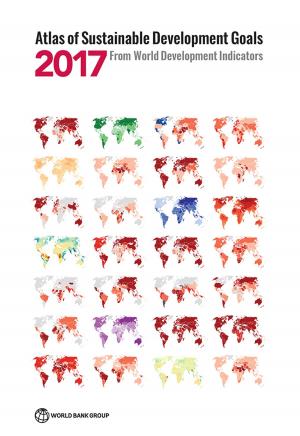Intellectual Property And Development: Lessons From Recent Economic Research
Nonfiction, Reference & Language, Law, Intellectual Property| Author: | Maskus Keith E.; Fink Carsten | ISBN: | 9780821357729 |
| Publisher: | World Bank | Publication: | January 1, 2005 |
| Imprint: | Language: | English |
| Author: | Maskus Keith E.; Fink Carsten |
| ISBN: | 9780821357729 |
| Publisher: | World Bank |
| Publication: | January 1, 2005 |
| Imprint: | |
| Language: | English |
International policies towards protecting intellectual property rights have seen profound changes over the past two decades. Rules on how to protect patents, copyright, trademarks and other forms of intellectual property have become a standard component of international trade agreements. Most significantly, during the Uruguay Round of multilateral trade negotiations (1986-94), members of what is today the World Trade Organization (WTO) concluded the Agreement on Trade Related Intellectual Property Rights (TRIPS), which sets out minimum standards of protection that most of the world's economies have to respect. How will developing countries fare in this new international environment? This book brings together empirical research that assesses the effects of changing intellectual property regimes on various measures of economic and social performance ranging from international trade, foreign investment and competition to innovation and access to new technologies. The studies presented point to an important development dimension to the protection of intellectual property. But a one-size fits all approach to intellectual property is unlikely to work. There is need to adjust intellectual property norms to domestic needs, taking into account developing countries' capacity to innovate, technological needs, and institutional capabilities. In addition, governments need to consider a range of complementary policies to maximize the benefits and reduce the costs of reformed intellectual property regulations. It will be of interest to students and scholars of international law, particularly in the area of intellectual property rights, international trade and public policy.
International policies towards protecting intellectual property rights have seen profound changes over the past two decades. Rules on how to protect patents, copyright, trademarks and other forms of intellectual property have become a standard component of international trade agreements. Most significantly, during the Uruguay Round of multilateral trade negotiations (1986-94), members of what is today the World Trade Organization (WTO) concluded the Agreement on Trade Related Intellectual Property Rights (TRIPS), which sets out minimum standards of protection that most of the world's economies have to respect. How will developing countries fare in this new international environment? This book brings together empirical research that assesses the effects of changing intellectual property regimes on various measures of economic and social performance ranging from international trade, foreign investment and competition to innovation and access to new technologies. The studies presented point to an important development dimension to the protection of intellectual property. But a one-size fits all approach to intellectual property is unlikely to work. There is need to adjust intellectual property norms to domestic needs, taking into account developing countries' capacity to innovate, technological needs, and institutional capabilities. In addition, governments need to consider a range of complementary policies to maximize the benefits and reduce the costs of reformed intellectual property regulations. It will be of interest to students and scholars of international law, particularly in the area of intellectual property rights, international trade and public policy.















